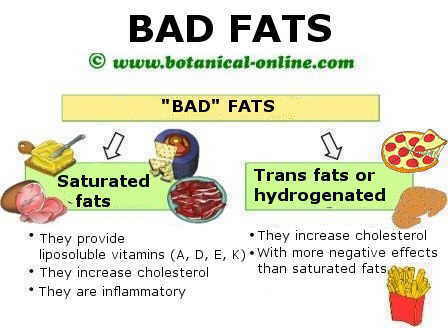Contents
- 1 CHOLESTEROL CAUSES
- 1.1 CAUSES THAT INCREASE CHOLESTEROL LEVELS
- 1.2 What are the real causes of high cholesterol?
- 1.3 NON-MODIFIABLE FACTORS OF CHOLESTEROL HIGH LEVELS
- 1.4 Cholesterol genetic factors
- 1.5 Diseases that can produce high cholesterol levels
- 1.6 Cholesterol and pregnancy
- 1.7 Cholesterols and medicines
- 1.8 Cholesterol levels can rise with age
- 1.9 MODIFIABLE FACTORS OF CHOLESTEROL HIGH LEVELS
- 1.10 High cholesterol with poor diet
- 1.11 Psychological stress and cholesterol
- 1.12 Lifestyle and high cholesterol
- 1.13 Tobacco and cholesterol
- 1.14 Alcohol and cholesterol
CHOLESTEROL CAUSES
CAUSES THAT INCREASE CHOLESTEROL LEVELS
Cholesterol is a fat present in the bloodstream and in all body cells. In the body, cholesterol plays vital functions, such as to make sex hormones, vitamin D and bile salts.
However, too much cholesterol in the blood can trigger major health problems such as arteriosclerosis and circulatory problems.
It is important to determine, along with the medical specialist, the causes of high cholesterol.
Although diet plays a key role, genetic factors also have a great influence, diseases and drugs, exercise habits and smoking tobacco, alcohol consumption, age and even psychological stress.
What are the real causes of high cholesterol?
In the following article we talk in depth about the possible causes of high cholesterol:
| CAUSES OF HIGH CHOLESTEROL | |
| Non-modifiable factors | Modifiable factors |
| – Genetic factors – Diseases – Drugs – Pregnancy – Age | – Improper diet – Sedentarism – Stress – Tobacco – Alcohol |
NON-MODIFIABLE FACTORS OF CHOLESTEROL HIGH LEVELS
Cholesterol genetic factors
Blood cholesterol levels are determined in part by genetic inheritance. There are genetic factors involving alterations in blood cholesterol level, and it is interesting to know the family history of cholesterol in the family. Sex is also a factor, since women tend to be more prone to high cholesterol levels.
People with a family history of cholesterol can also improve their cardiovascular health through a balanced diet, exercise and healthy habits. For example, a diet rich in lecithin (chick peas and all legumes, soy products, strawberries, sesame, nuts, dried fruit in general), will help to increase your good cholesterol, reducing cardiovascular risk.
GENETIC ALTERATIONS IN CHOLESTEROL LEVELS: – Familial Combined Hyperlipidemia – Familial Dysbetalipoproteinemia – Familial Hypercholesterolemia – Familial hypertriglyceridemia |
Diseases that can produce high cholesterol levels
Certain diseases tend to increase cholesterol levels. This is the case of diabetes, people with hypothyroidism, Hashimoto’s disease, women with polycystic ovaries, kidney disease, pancreatic disease and liver disease.
As with people with genetic predisposition, people who suffer from these diseases can also improve their cardiovascular health through a balanced diet, exercise and healthy habits.
Cholesterol and pregnancy
From cholesterol the body produces female hormones like progesterone, in charge of developing uterine tissue during pregnancy.
Due to the increase in hormones during this stage of life, women may experience an increase in their analyzes of cholesterol during pregnancy. This is natural. Pregnant women should follow a healthy diet and habits, controlled by the medical specialist.
Cholesterols and medicines
Some drug treatments can increase blood cholesterol levels. Among them, the most common are hormone replacement therapy or birth control treatments.
Cholesterol levels can rise with age
Cholesterol levels tend to rise with age. This fact is experienced by many women in the menopause, decreasing the level of estrogen protective against cholesterol.
 Picture of people on the street. Some factors, such as genetics, gender and age may influence cholesterol levels.
Picture of people on the street. Some factors, such as genetics, gender and age may influence cholesterol levels.
MODIFIABLE FACTORS OF CHOLESTEROL HIGH LEVELS
High cholesterol with poor diet
Diet plays a key role, being one of the main causes of high cholesterol levels in the population. Fortunately, this is a modifiable and educable factor.
Foods high in cholesterol are those of animal origin and acids, eg, fatty meats, butter, pastries (made with butter or lard), sausages, seafood, eggs (especially the yolk), cured cheese or whole milk. People with high cholesterol should reduce these foods from their diet and increase consumption of vegetables.
Trans fatty acids, present in processed foods also cause increased bad cholesterol. These fats are obtained artificially in laboratories and have a high cardiovascular risk. Scientific studies have shown that these fats not only increase bad cholesterol but also decrease the levels of good cholesterol.

Picture of two people eating ice cream. Industrial ice cream can contain trans fats. We must avoid the regular consumption of industrial products.
It is important to educate younger people about healthy habits as foods containing trans fatty acids are those industrial products intended for young audiences.
Foods that often contain trans fatty acids are principally microwave popcorn (also called millet or popcorn), potato chips and fast-food restaurants, salty snacks, some margarines, crackers, candies and some chocolates. Check labels and make sure they do not contain trans fats.
A doctor or nutritionist can guide you better on how to improve your diet.
| The basis for lowering cholesterol is a healthy balanced diet, rich in vegetables such as beans, grains, vegetables, fruits and nuts. |
Psychological stress and cholesterol
Psychological stress is a factor increasingly related to cholesterol. Although apparently seems to be no relationship between them, the fact is that the body produces stress hormones from cholesterol, which cause us to be on alert.
The continued stress or nervousness can cause to increase these hormones. As a natural resource, the body has more cholesterol because it needs more blood, to make such hormones.
All people having cholesterol should prevent or reduce the stress level. |
Lifestyle and high cholesterol
Sedentary lifestyle: Lack of exercise also influence blood cholesterol levels. Our body is designed for activity, and sedentary lifestyle is an abnormal condition of the body. Exercise increases good cholesterol, which in turn helps to reduce bad cholesterol.
In addition, physical activity stimulates circulation, favors metabolism and improves cardiovascular health.
| Daily exercise is the best medicine against cholesterol. Try each day to have time to walk, or do outdoor activities on holidays. This will help reduce stress and prevent obesity. |
Tobacco and cholesterol
Smoking is a modifiable factor that can increase cholesterol. This habit not only affects the lungs, but encompasses the entire body. Because smoking is an oxidant factor which deteriorates the body that needs to increase antioxidants intake. Antioxidants should be consumed in the diet through foods rich in vitamins, such as mango, peppers or oranges.
In the same way that a refined oil (which has lost because of refinement its vitamin E, its natural antioxidant oil) becomes rancid in a short time, our body fats undergo the same degradation in the body. Smoking causes body fat, like cholesterol, to be degraded before time and to be deposited in the arteries, causing atherosclerosis. For this reason, smokers have increased cardiovascular risk.
To avoid these effects, smokers should make a diet rich in vitamin C and vegetables, and reduce or avoid consumption of tobacco. Consult your doctor if you need help to reduce its consumption (more).
| Arteriosclerosis is a disease in which excessive cholesterol deposits in arteries. Because of this, the heart must pump harder and the arteries lose elasticity and circulation gets worse. |
Alcohol and cholesterol
Alcohol consumption is another modifiable factor that may increase cholesterol levels. Alcohol is metabolized in the liver, which in turn, is responsible for transforming the bad cholesterol into good cholesterol or other products such as bile.
Excessive consumption of alcohol can cause hypercholesterolemia and other liver disorders (more). Check with your doctor to see if your alcohol intake is adequate.
In contrast, moderate wine consumption may be beneficial by helping to increase good cholesterol because it contains resveratrol. According to the World Health Organization (WHO), moderate consumption is between 0 and 2 glasses of wine per day (100ml each glass).
| High cholesterol is a silent disease that causes deterioration of the arteries.Your doctor can guide you on how to change some factors that contribute to increased cholesterol. |
![]() More information about cholesterol.
More information about cholesterol.








